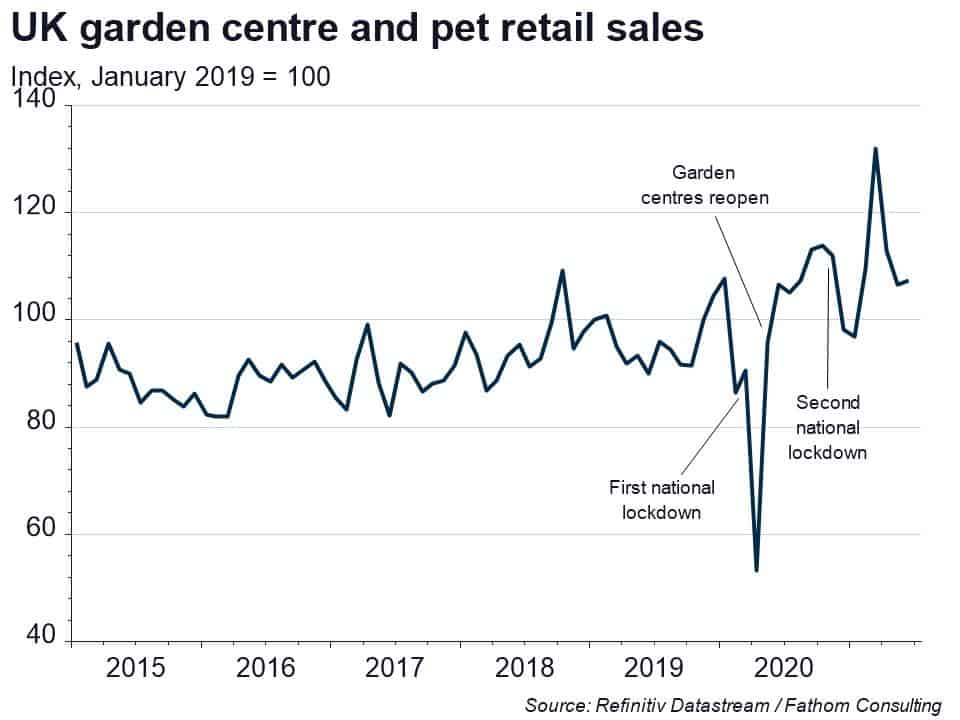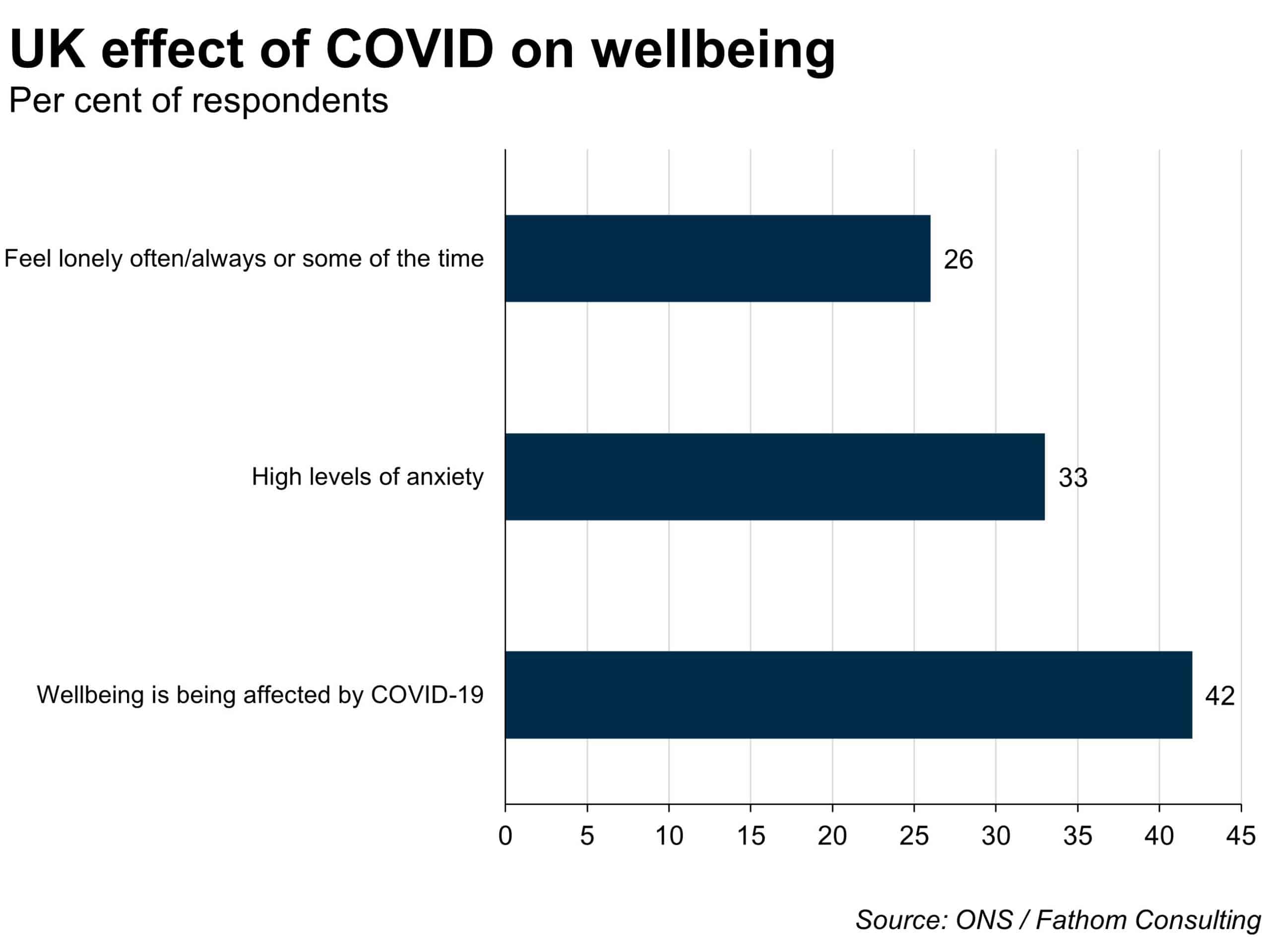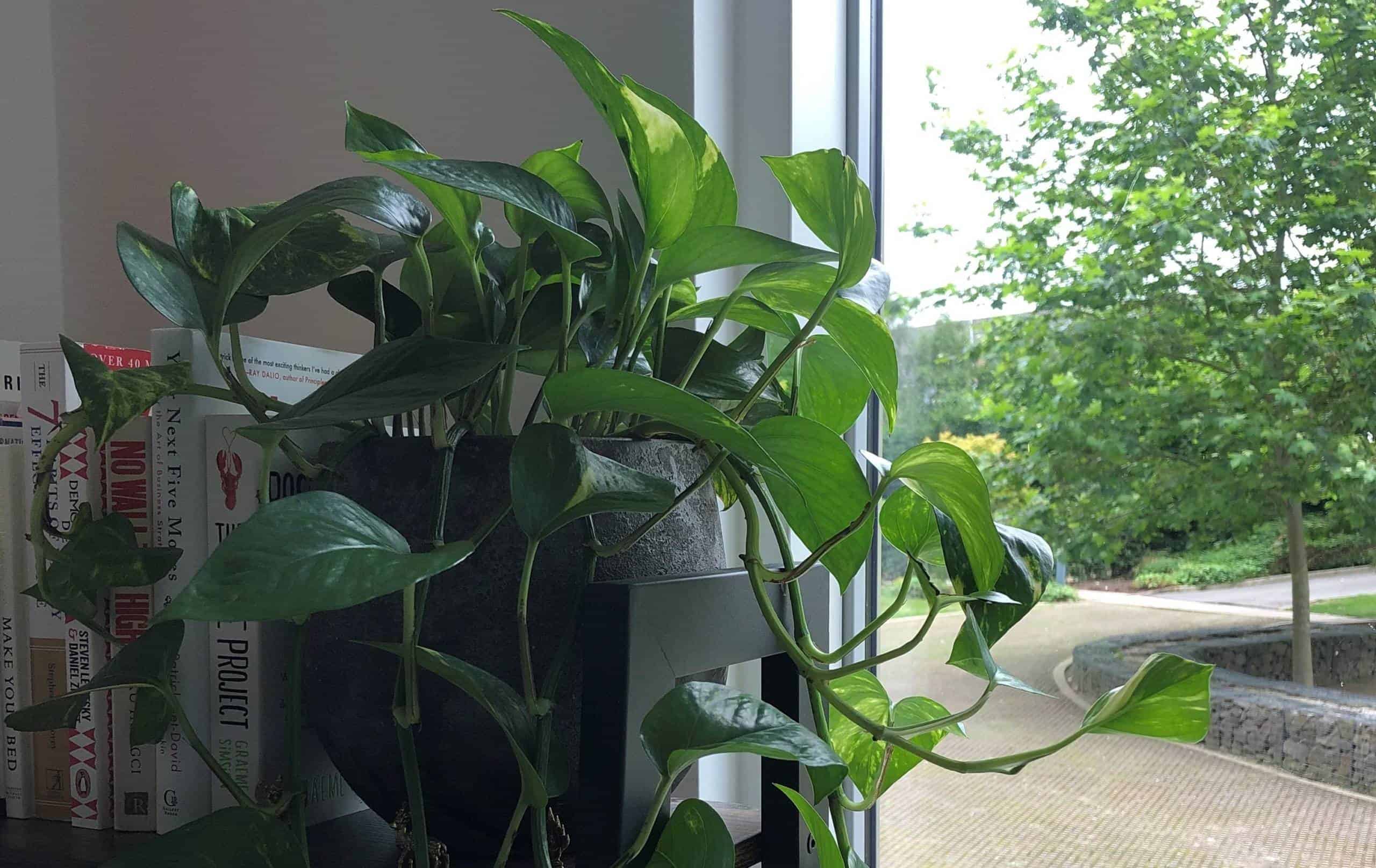A sideways look at economics
I’ve recently started investing in house plants. After several failures in the past involving plants either drowning or dying of thirst, the law of averages suggests that this time I should get it right! Before you judge me, I’m not alone. 67% of US millennials would confess to being ‘plant murderers’, albeit the killings were probably unintentional. Regardless, houseplant sales have gone up significantly during the pandemic, and hopefully the latest crop stand a better chance of survival than the generations that went before them.

We purposefully chose Devil’s Ivy as it was easy to care for, and took the tactical decision to name it Satan, believing that if things did go wrong, killing the devil wouldn’t be such a bad thing… right? We bought Satan simply to fill an aesthetic gap on our bookshelf, but apparently there are several other benefits to increasing the number of plants in your house.
We’ve come a long way as a species, from hunter-gathers to specialised cogs in a global economy. Whilst we’ve achieved things in recent history that were beyond the wildest dreams of our ancestors, aspects of our current lifestyles could also be from their nightmares. A survey of human activity in 2001 found that US adults spend on average 90% of their lives indoors: a shocking, indeed slightly dystopian, statistic that similar studies have found holds true in other nations, including the UK. COVID-induced lockdowns and restrictions will undoubtedly have increased this percentage. Staying indoors for excessive amounts of time has been linked to worsening sleep and appetite patterns, as well as increased anxiety and depression. One study of Chinese individuals with no previous history of mental illness found that 60% had experienced depression and 53% sleep disturbance during lockdowns. Research from the ONS supports these findings, with data suggesting that over 40% of UK adults have felt their wellbeing has been affected by COVID-19.

More time outside would no doubt reduce these symptoms, as we’ve all discovered during lockdown, but getting outdoors is not always possible. Luckily, increasing the amount of greenery indoors can actually have similar effects. Studies have shown that exposure to plants has physical effects on the brain, increasing relaxation. However, much like being a real parent I’m sure, it’s not all plain sailing for “plant parents”. The previously mentioned survey of US millennials found that 48% had anxiety about being able to keep their plants alive. On the whole, though, 81% said that adding plants to their space had had a positive effect on their mental and physical health.
Yes, physical health – it’s not just mental health benefits that indoor plants can bring. They can also help keep our bodies in good shape. Data suggests we should be exploiting this more than ever, as staying indoors is as bad for your physical health as it is for mental wellbeing. As the time we spend indoors has increased, so has the number of deaths from indoor air pollution. The World Health Organisation estimates that there are around 8 million deaths each year attributable to air pollution, with almost 50% of this due to pollution in our homes. In fact, some studies suggest air pollution in enclosed indoor spaces is usually around 2 – 10 times higher than outdoors. Whilst most of these deaths occur in developing countries where citizens often depend on burning fuels like wood with high levels of harmful emissions, citizens of developed countries are far from immune. In the years before Brexit the UK breached EU legal limits on air pollution 10 years in a row — a fact which suggests we didn’t need Brexit to stop listening to the EU! In 2017, the latest year of available data, over 90% of the world’s population was exposed to air pollution levels exceeding World Health Organisation guidelines. The effects can manifest physically, with harms ranging from minor eye irritation to serious conditions like cancer.

Simple houseplants can’t tackle the source of this issue, but they can help alleviate the effects. Every plant is able to filter volatile organic compounds and particulates as it takes in carbon dioxide from the air during photosynthesis. Research in Delhi, one of the most polluted cities in the world, has found that adding plants to an office building significantly reduced the number of reported symptoms of pollution. Other studies have shown that air quality in the average room can be increased by 75% with the addition of 5 medium-sized plants. According to results from other studies, improving air quality by that much can increase life expectancy by more than two years.
Businesses can benefit as well. After plants were introduced to the office building being studied in Delhi, the building’s CEO reported a 20% increase in productivity that he directly attributed to the increased greenery. As the man behind the scheme, he may be inclined to exaggerate the benefits, but similar experiments in the UK have concluded that bringing plants into the workplace increased productivity by 15%. Fathom does relatively well in this area, with more than 2 plants per desk in the office, but is still, according to these studies, yet to maximise their benefit (around 4 plants per person in the Delhi study). I’m sure our resident plant parent, Liz, will be more than happy to spend less time on data analysis and up the amount of plant care she performs! Even excluding the personal health benefits to the workforce, productivity gains alone would more than pay for their maintenance.
We evolved as a species to live not just close to nature but as part of it. However, as humans have advanced, we’ve replaced our natural surroundings with artificial ones. As the well-known Boiling Frog fable goes:
“If a frog is suddenly put into a pot of boiling water, it will jump out and save itself from impending death. But, if the frog is put in lukewarm water, with the temperature rising slowly, it will not perceive any danger to itself and will be cooked to death.”
In much the same way, continually isolating ourselves from nature has begun to take its toll on our health, and the temperature of the pot is rising. Bringing nature back into our lives is essential in reversing this trend. So let ‘Satan’ – and any number of other innocent houseplants – into your home!

Satan the Devil’s Ivy